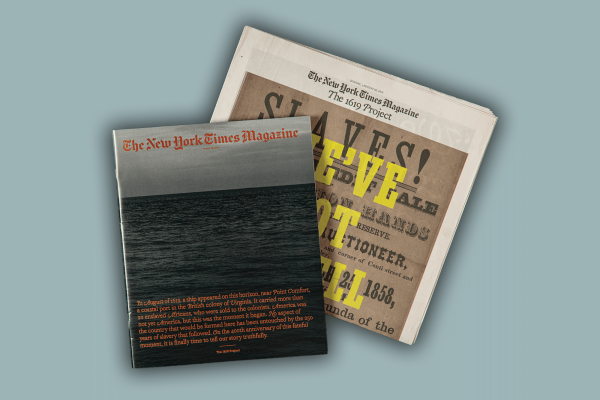IN AUGUST 2019, The New York Times published a special edition of its magazine, with an accompanying podcast, to note the 400th anniversary of the arrival of the first Africans in the Virginia colony. They called the total work “The 1619 Project.” As a Times blurb for the project put it, “American slavery began 400 years ago this month. This is referred to as the country’s original sin, but it is more than that: It is the country’s true origin.”
Almost a year later, “The 1619 Project” became a school history curriculum, and in the waning days of his presidential administration Donald Trump pushed back with plans for a “1776 Commission” to promote “patriotic education” and counter the claim that “America is a wicked and racist nation.”
It’s not surprising that a nation in which everyone has a right to their own facts may end up with two foundings. However, while those who emphasize the centrality of African enslavement in the American story are certainly closer to the truth, both the champions of 1619 and 1776 are missing something crucial. For all the things it got right, “The 1619 Project” over-simplified the origins of the U.S. slave system. As the eminent African American historian Nell Irvin Painter wrote in The Guardian, “People were not enslaved in Virginia in 1619, they were indentured. The [first] Africans were sold and bought as ‘servants’ for a term of years, and they joined a population consisting largely of European indentured servants, mainly poor people from the British Isles.”
Read the Full Article

